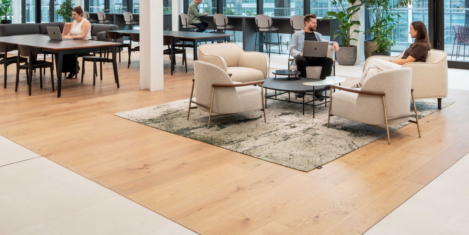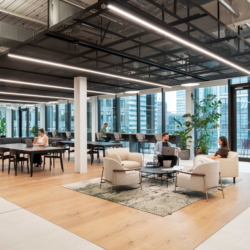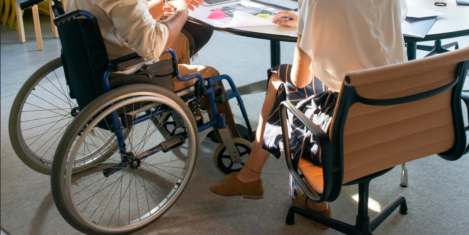May 31, 2013
UK employment recovery could take up to four years finds research
It will now be more than four years before the UK restores the employment rate of 2008 – and jobs recovery could take far longer. According to a new analysis from independent think tank the Resolution Foundation, it is now all but certain that the current jobs recovery will take longer than that following either the 1980s or 1990s recessions. The new findings are based on calculations of the UK ‘jobs gap’, the number of jobs the UK needs to create in order to restore the 2008 employment rate. The tough figures are explained partly by the UK’s ageing workforce, as a third of the current jobs gap is down to the growing share of the workforce aged over 64, which is growing twice as fast as the population aged 16-64. (more…)


































July 5, 2013
Douglas Engelbart helped to define our relationship with technology and each other
by Mark Eltringham • Comment, Flexible working, Technology
The obituaries of Douglas Engelbart, who died on Tuesday, invariably characterised him as ‘the inventor of the mouse’ which is downplaying the contribution he made to our ability to interact with computers. He had the foresight to see that our relationship with technology would become one of the defining characteristics of modern life and he had it at a time when computers were the size of rooms and programmed using punched cards. He took part in the world’s first videoconference and developed ideas for early incarnations of word processors, the internet and email. He made no money from the mouse, the rights for which were sold to Apple for $40,000 in 1983 and the patent for which ran out in 1987. He was honoured in his lifetime however, winning the Lemelson-MIT prize in 1997 and a National Medal of Technology for ‘creating the foundations of personal computing’ in 2000.
While the mouse appears to be about our physical interaction with the computer, and indeed is one of the most pressing concerns for ergonomists, Engelbart was actually more concerned with developing ways for groups of people to use computers to share information and ideas. His thoughts on how intellectualised workers would apply technology while sitting at what he called ‘working stations’ are strikingly contemporary but at the time he expressed them went against the grain in a world in which computers were mere number crunching machines. Indeed, for a time Engelbart became a marginal figure as interest waned in his ideas, only for him to achieve the recognition his work and ideas deserved over the last twenty five years as the internet transformed our working lives.